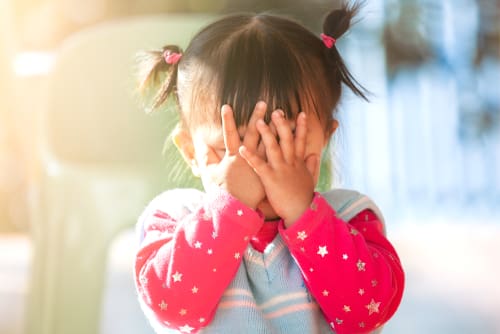
Is it selfish to want a baby? I was recently asked this question and it surprised the heck out of me. As a childless woman by choice, my decision always had people judging me as selfish. I never understood the connection between wanting a baby and selfishness. However, I think I am alone on this one as it feels like a common judgment related to becoming a parent.
Whether you want a child or do not want a child, the judgment seems to be the same these days – you are selfish!
In regard to being selfish when one wants a baby, I hear this more and more around the issues of climate change and all the other “news” of the day that makes anyone want to pull out their hair. How can someone actively decide to bring a baby into this world when it is what it is today?
Biology — first and foremost. Humans are wired to reproduce. Although we are thinking mammals, we are mammals and we are here to leave our actual DNA behind. Although there are all of the modern dating apps and anguish over meeting the right mate, the whole point of it is as old as the hills. We are meant to find a mate and reproduce. Nothing selfish about our biological desire to have a baby.
Hopefulness — to desire to have a baby automatically makes you an optimist in my book. To have a child is to invest in the future and to believe it will be and can be good. There is faith that mankind will continue and in our evolution good will come to bear. I don’t see anything selfish in optimism.
Personal fulfillment — now this is where the decision to have a baby or not may be judged as selfish. I am not exactly sure when the judgment came about to call someone selfish when they are fulfilling their heart’s desire. Is it from the “other” who is not leading a life of personal fulfillment? I often think that those who are negative in their judgments of people are unhappy.
Regarding personal fulfillment, desiring a baby can be about fulfilling a deep well inside that seeks to procreate in order to experience not only wanting a baby, but having one and raising a child. The relationship between parent and child is one of the most significant that humans can experience. It is not selfish to want to be a parent to a child.
What can be said for the era we are living in? My guess is through all of the ages the world was in a challenging space in one way or another. That’s why it is not only important to hold on to one’s optimism, but also to think through how you will raise your child — aware of the climate change issues, modeling sustainable living practices, and being curious about the issues we are facing and helping our children to think about creative solutions — this is the next generation after all.
Wanting a baby and thinking you are selfish? Nah. Don’t take on such a judgment. Be aware of your intention and desire for a baby and move forward without such negativity.
Whether you choose to have a baby or not, selfishness is not the core of the issue. Never has been — if you are wondering why someone may or may not want a child, ask and listen. Be open. Be curious. Drop the judgment.



